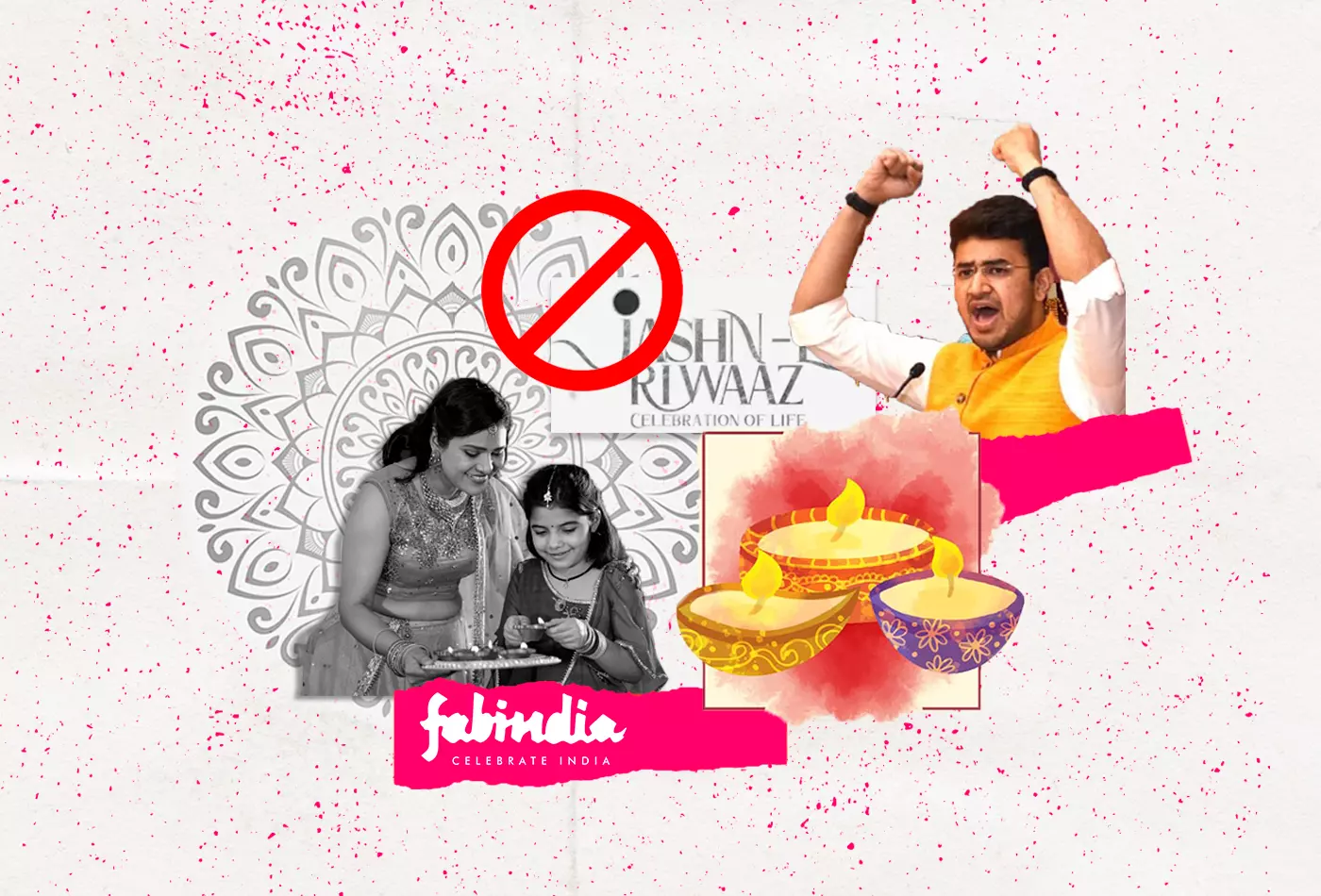As days get closer to the day of Diwali, the Hindu festival of lights celebrated in India and other parts of the world; preparations for the celebrations gradually increase. Since the main motive of companies is to attract consumers towards them; marketing will circle the trends and routines that matter to the common folk. Since Diwali is one of the biggest festivals celebrated in India, unsurprisingly, the current has shifted in its direction. In one such advertisement among many for this occasion; FabIndia’s recent Diwali advertisement, “Jashn-e-Riwaaz” has caught social media by fire. For those who hadn’t had a chance to visit the advertisement it goes something like this:
The content of the advertisement
5 friends, 2 of them being males and the other 3 females; are taking a road trip in Rajasthan. The advertisement is narrated from the perspective of one of the guys who happens to have a crush on one of his female friends. Since FabIndia is a retail company that sells ethnic garments and fabrics of India; the videography at many points doesn’t shy away from showcasing just that.
While everyone is cherishing their time in Rajasthan, the guy wonders about his crush’s intentions about Rajasthan’s culture. He who belongs to Rajasthan; is especially curious about it.
They reach his house later that day. Everyone in his family is overwhelmingly happy to see him home. His friends are mesmerized by the wealth, lavish living conditions, food, clothing and dance arranged at his house. In the evening, everyone dresses up and gets together to celebrate the festivities.
Knee-jerk reaction following the release of the ad
The advertisement ended with a written “Jashn-e-Riwaaz” (Trans: Rituals of Celebration) note and this did not sit well with its recipients. People took to Twitter to complain about how adding “Jashn-e-Riwaaz”; being an Urdu lingo takes away the essence of Diwali. Urdu lingo, such as the aforementioned are only used in festivals associated with Muslims. People took to Twitter to disapprove of it as they saw this as the company’s effort of turning Diwali into an Abrahamic religious festival. And, this was what was seen as unacceptable to them.
India has already seen and experienced its share of tense history of communal disputes in the past. This ad had provoked hurt sentiments of its own for them.

